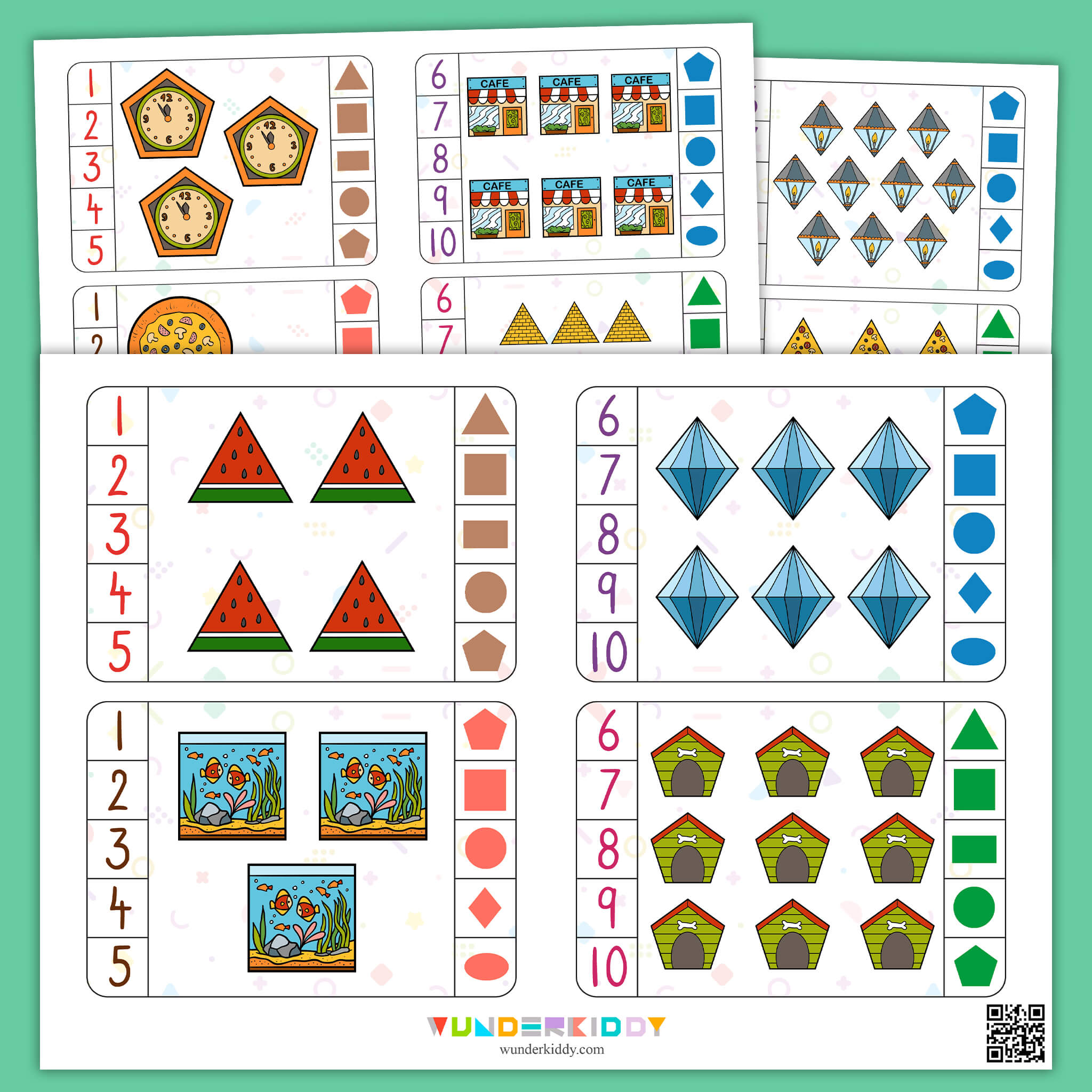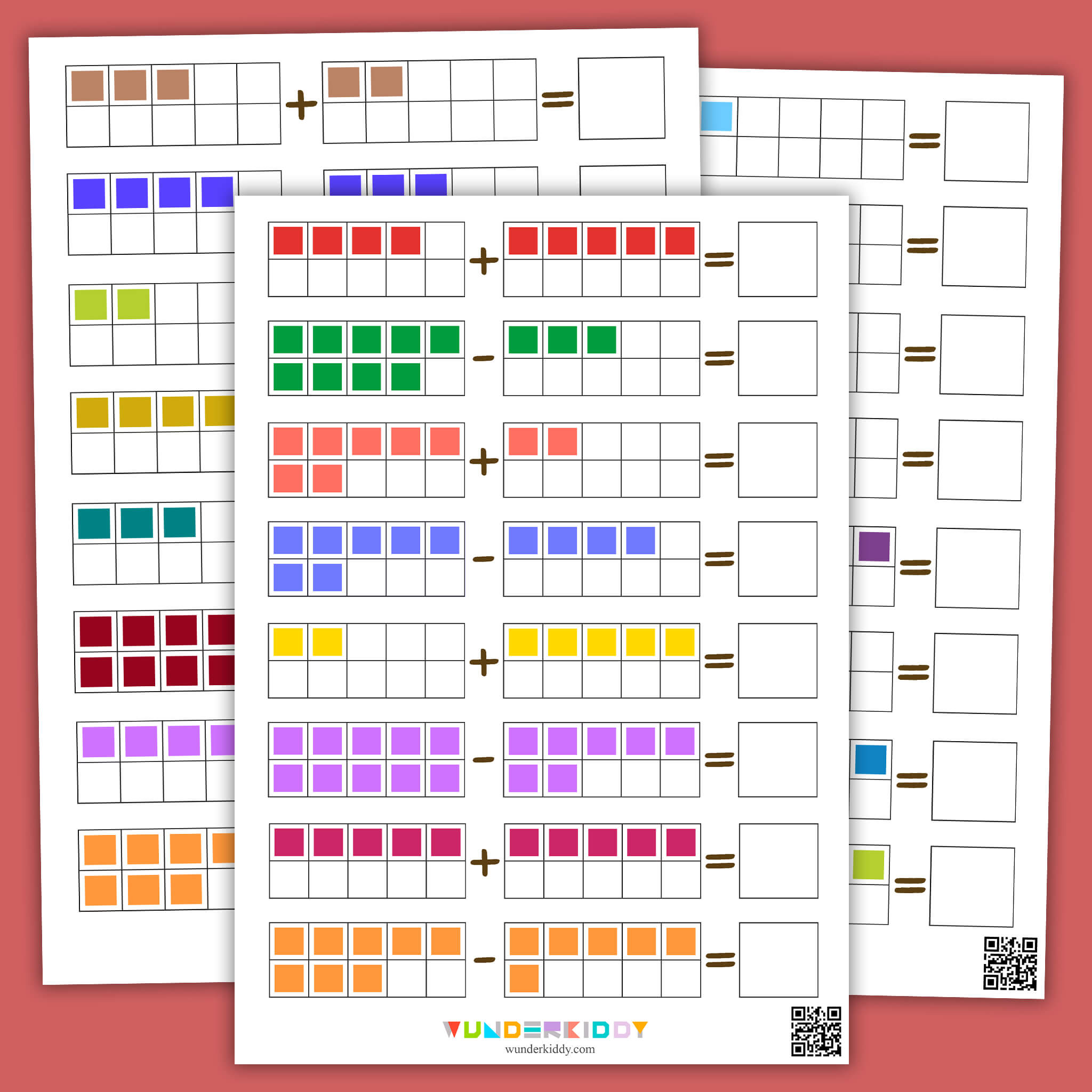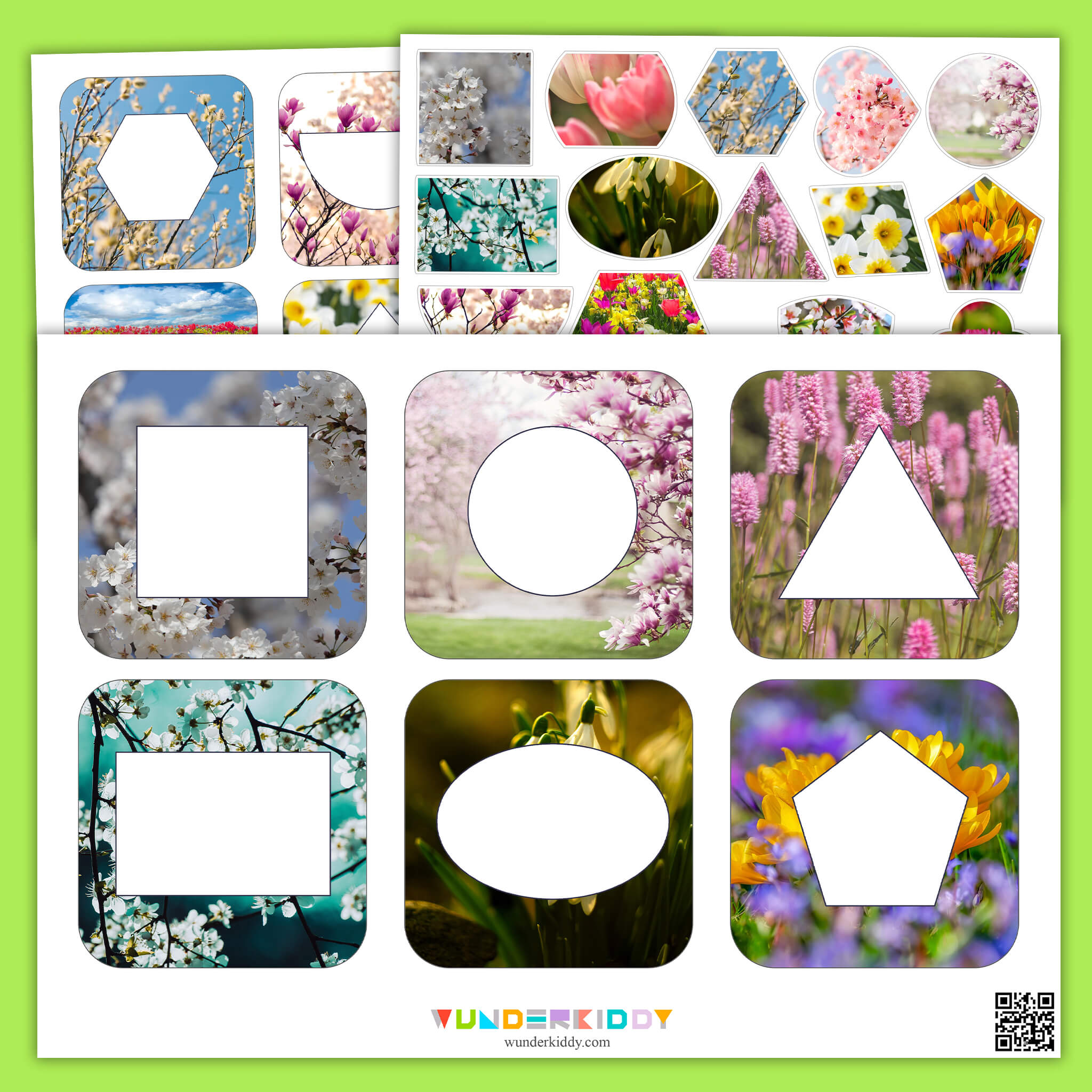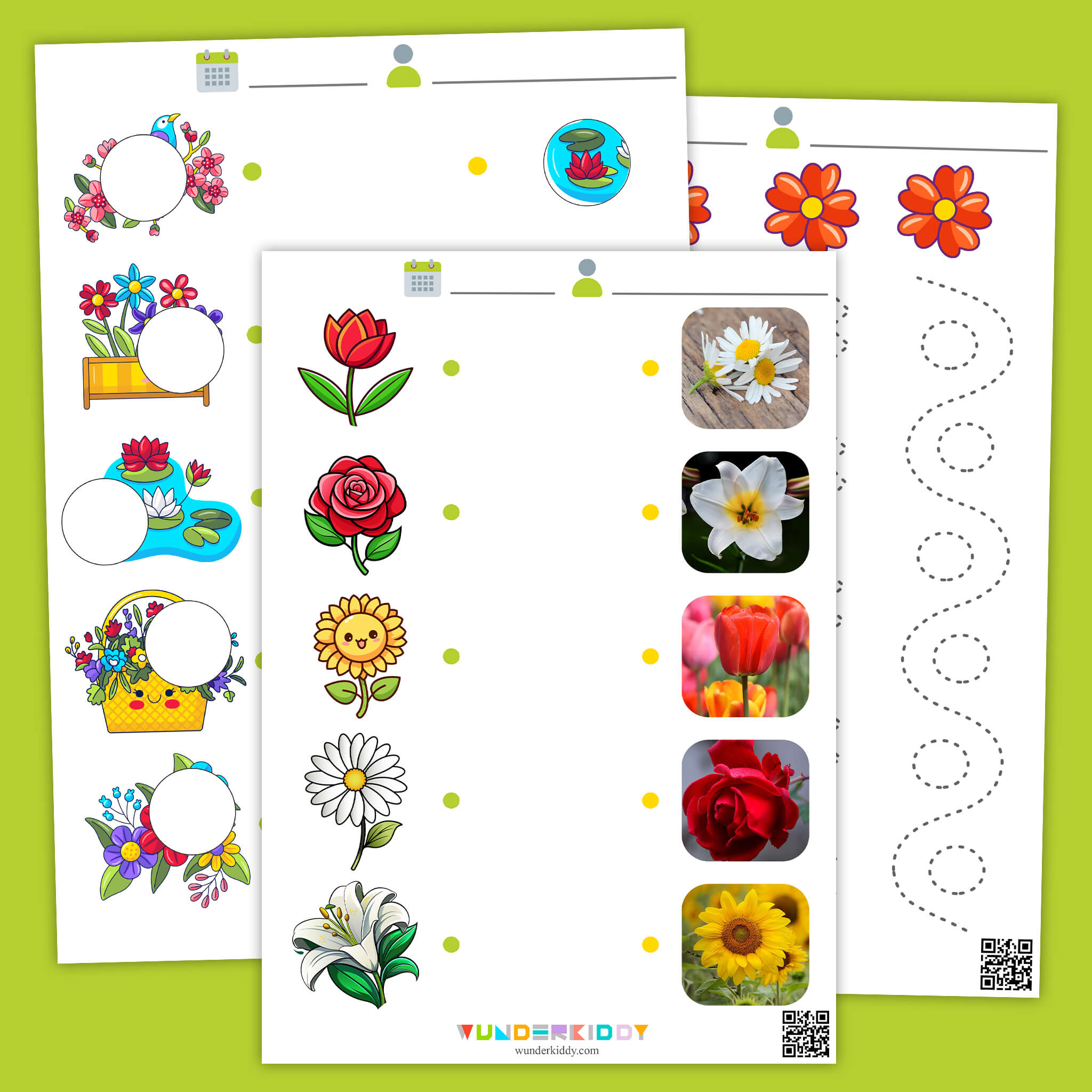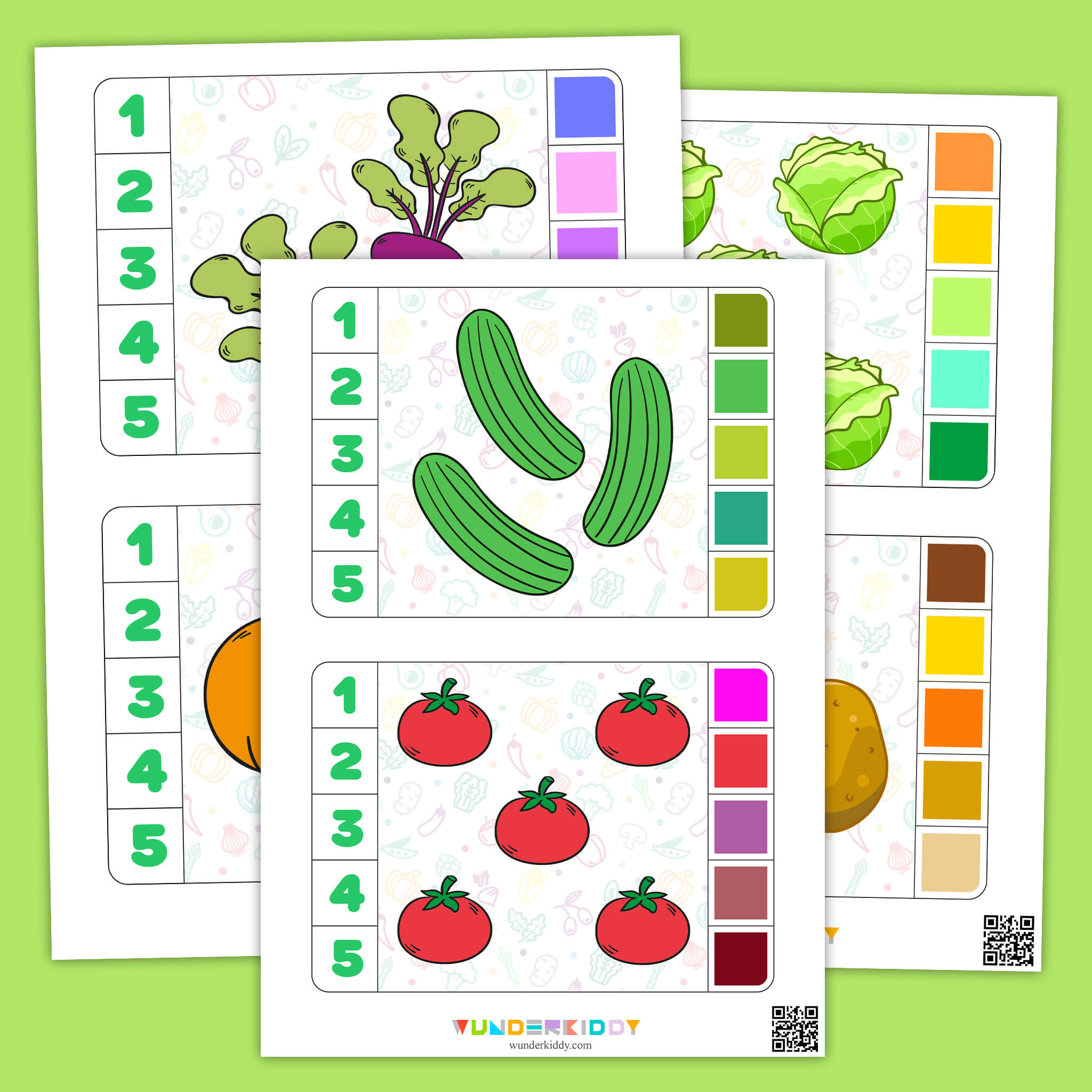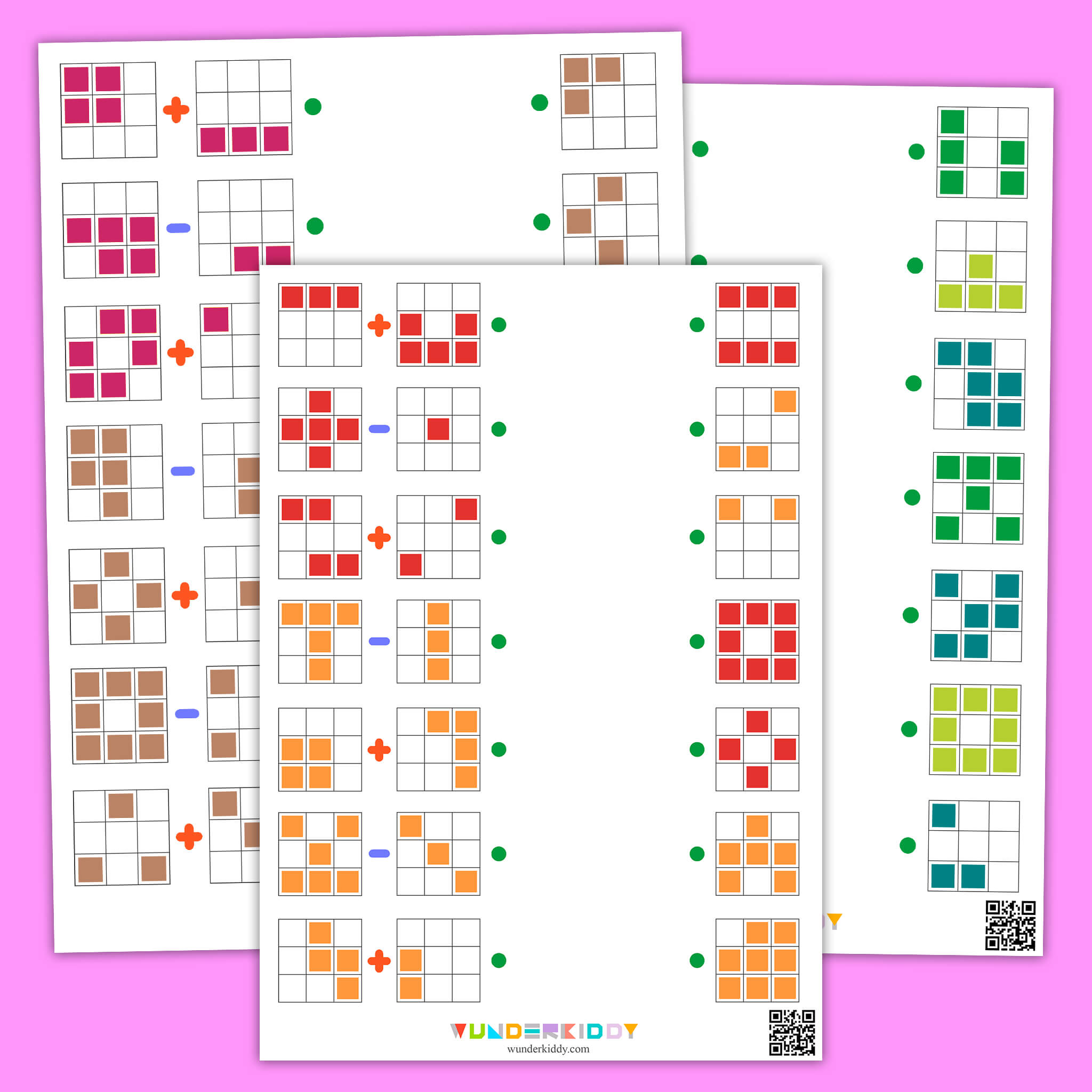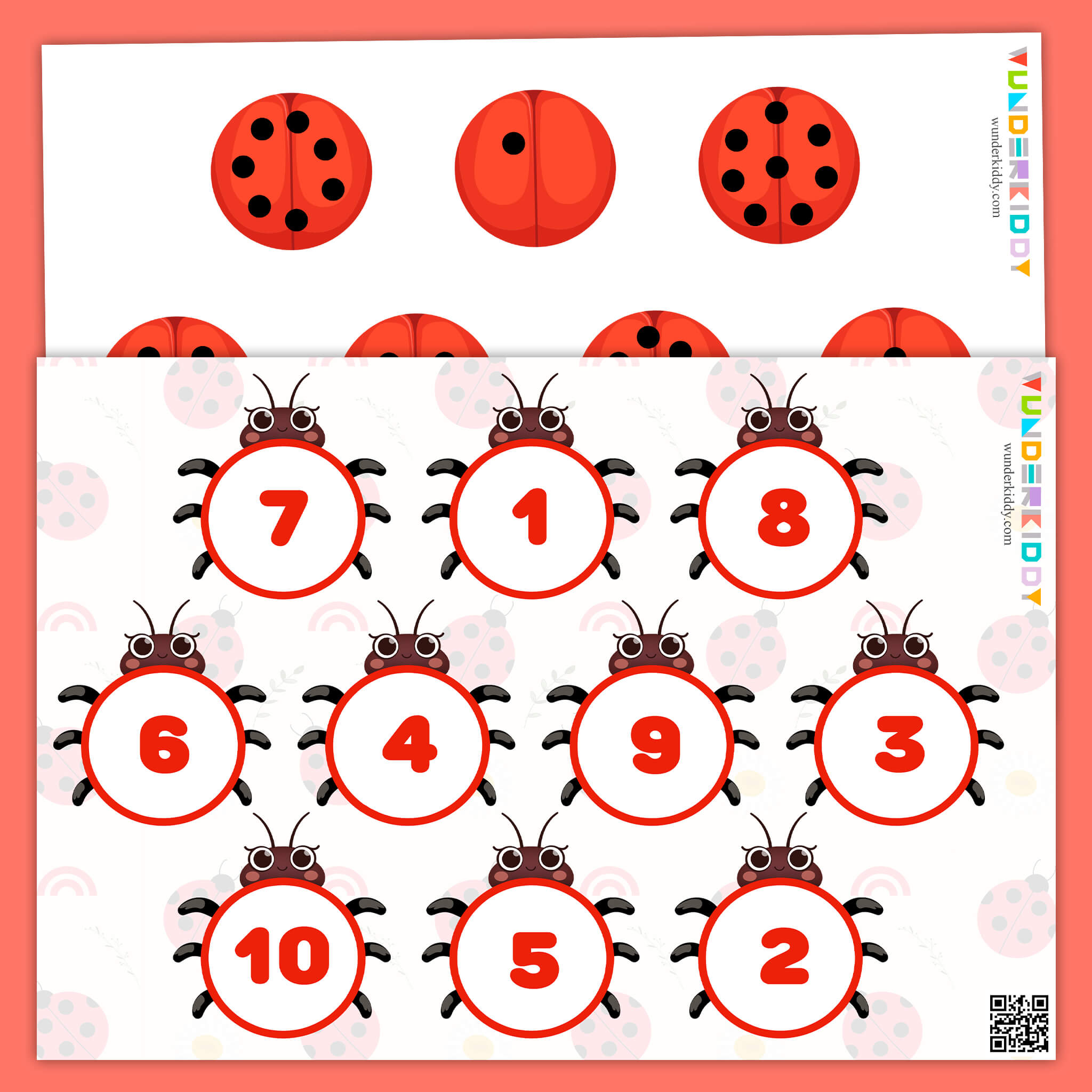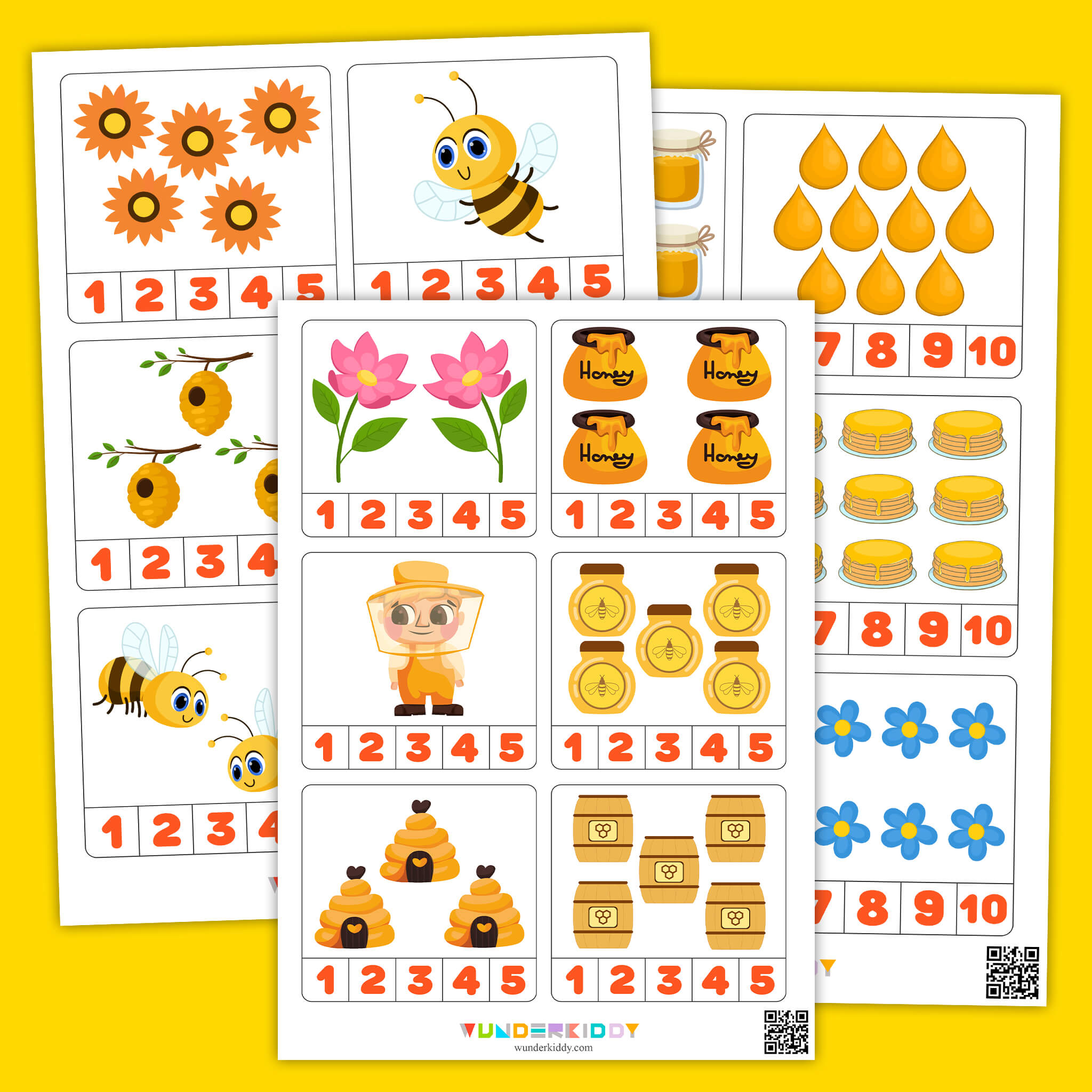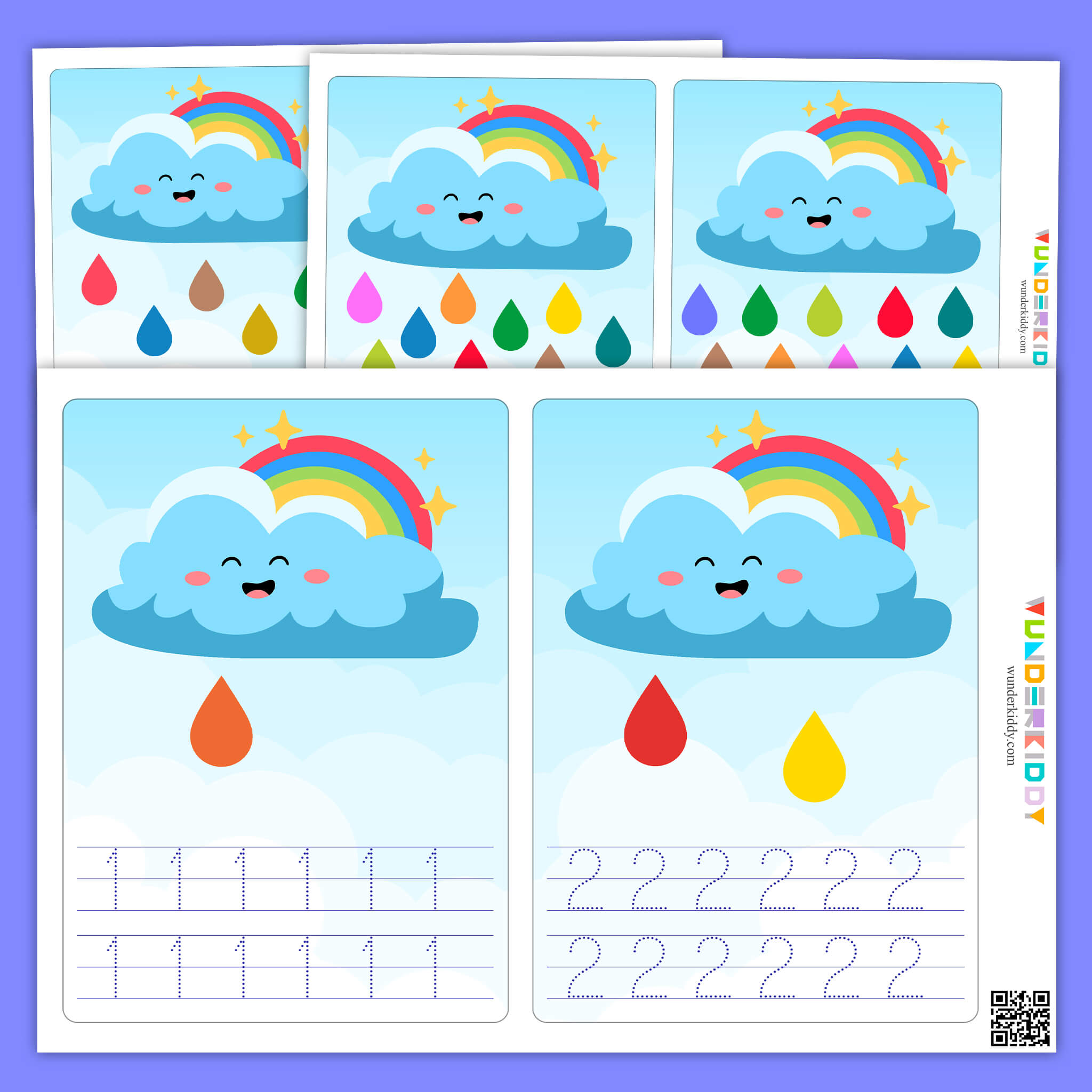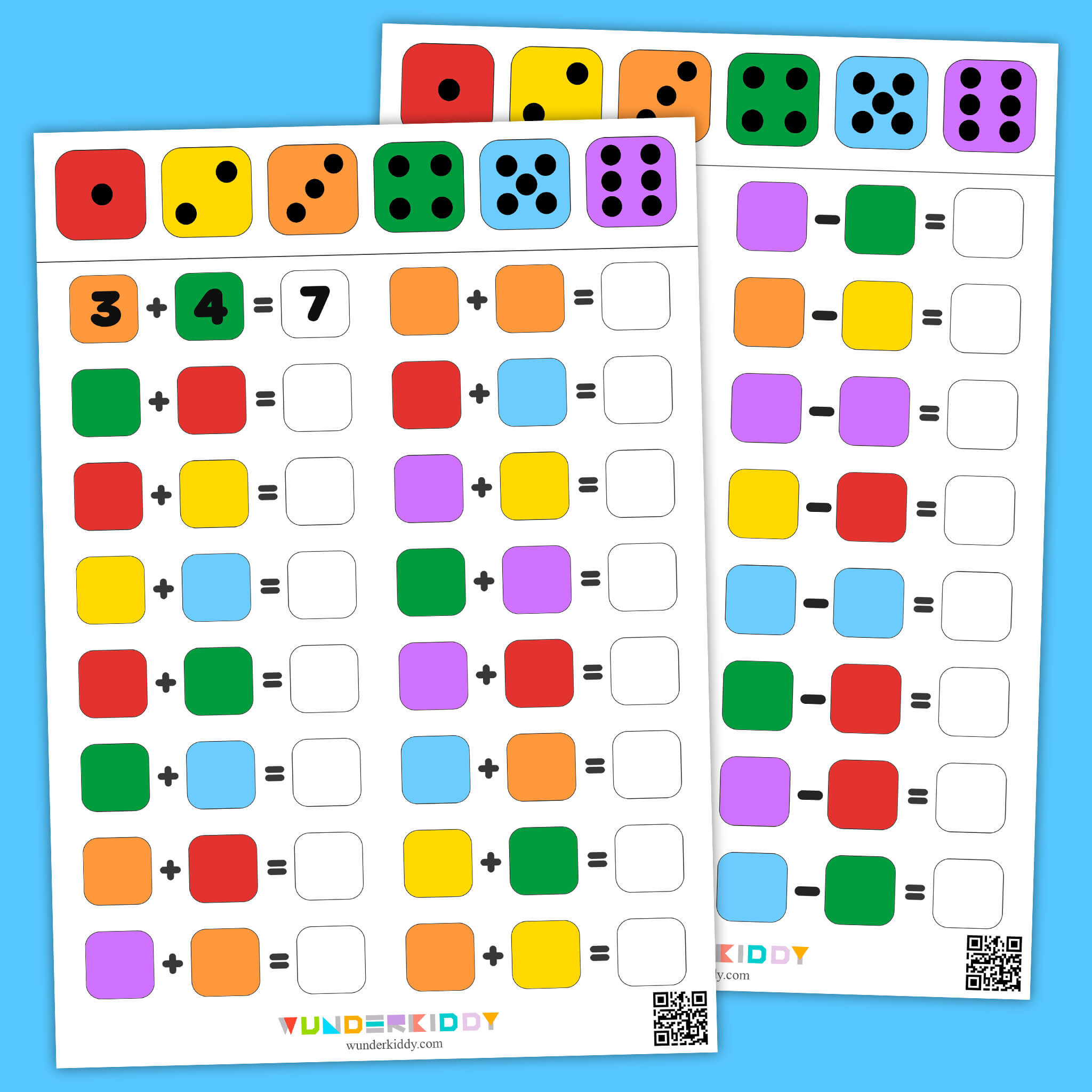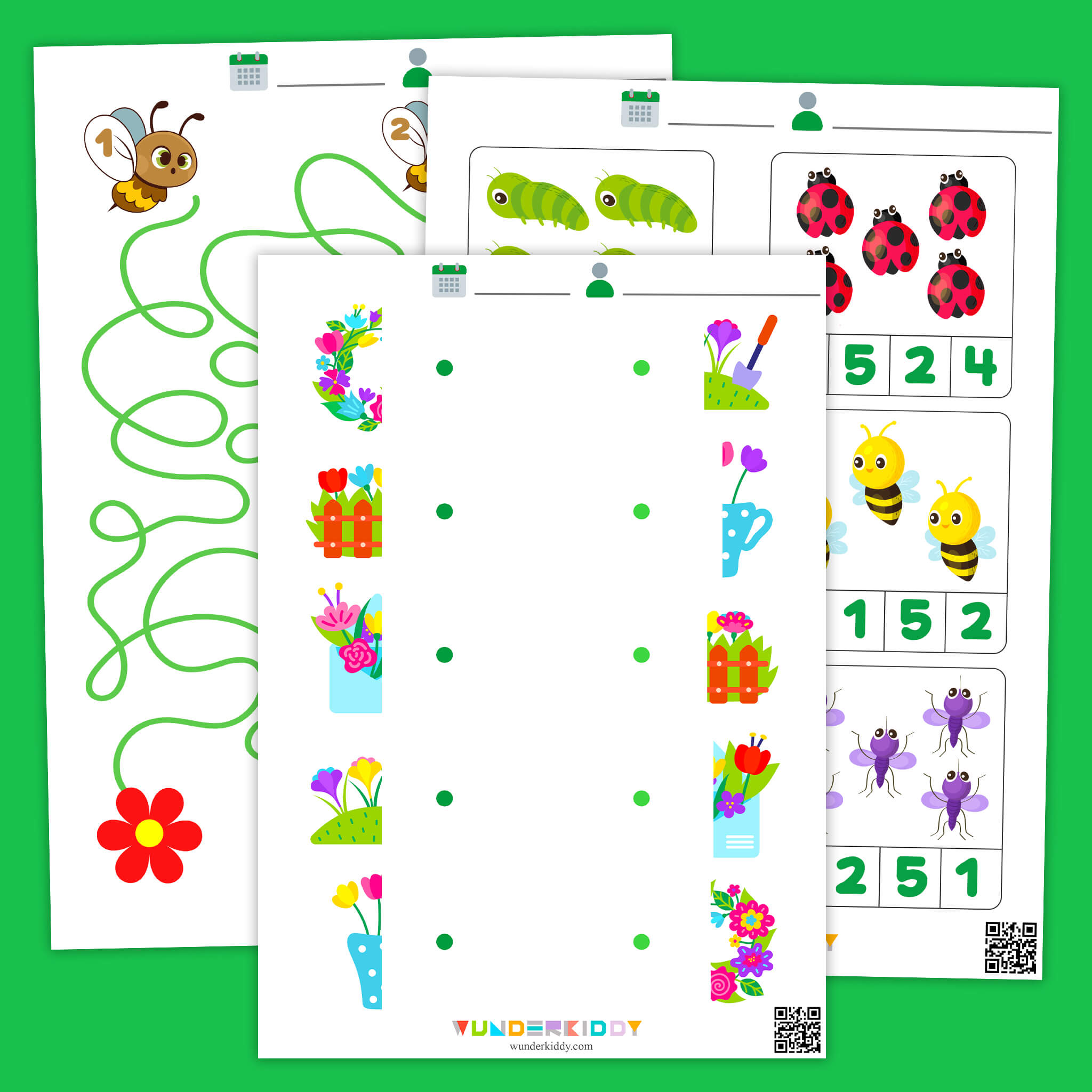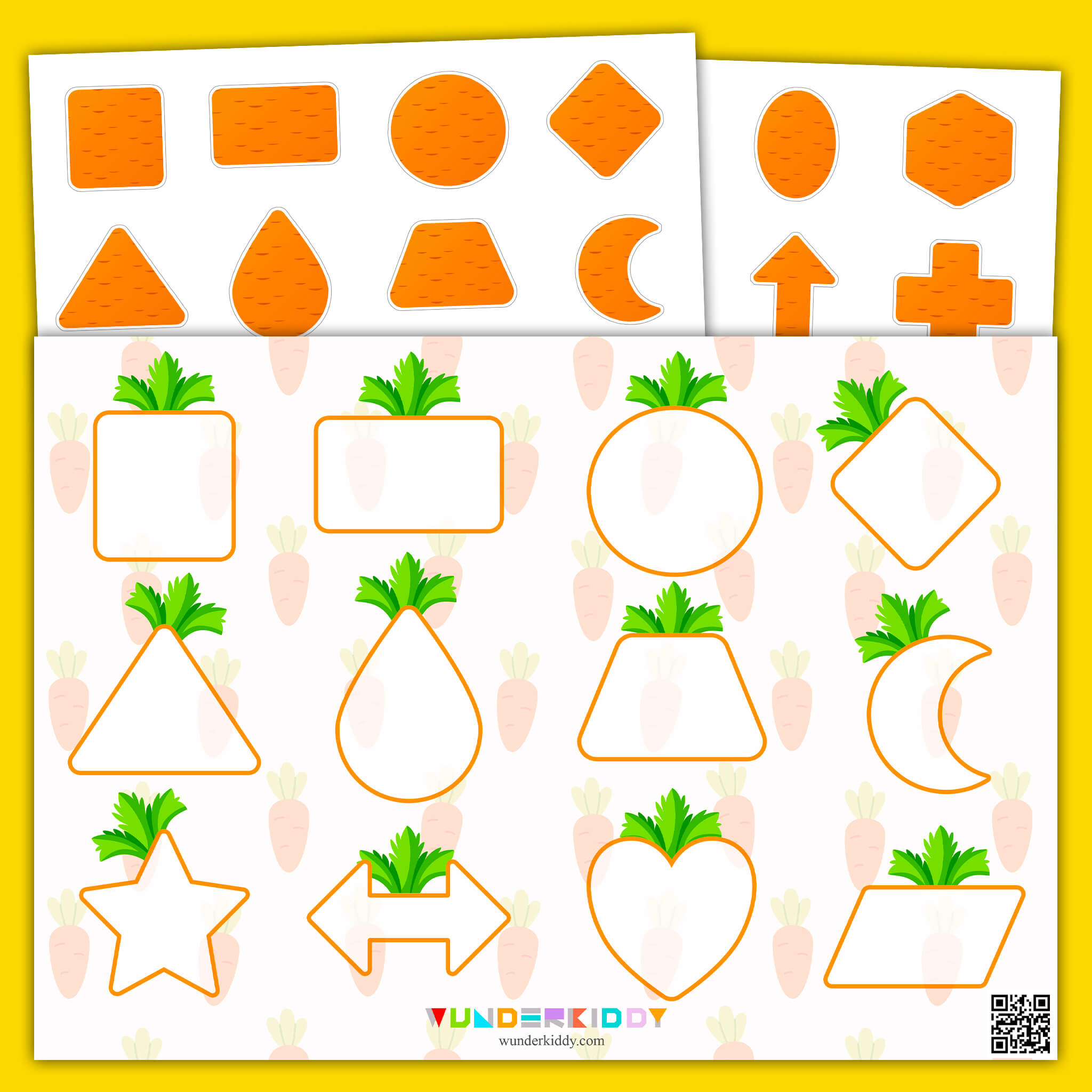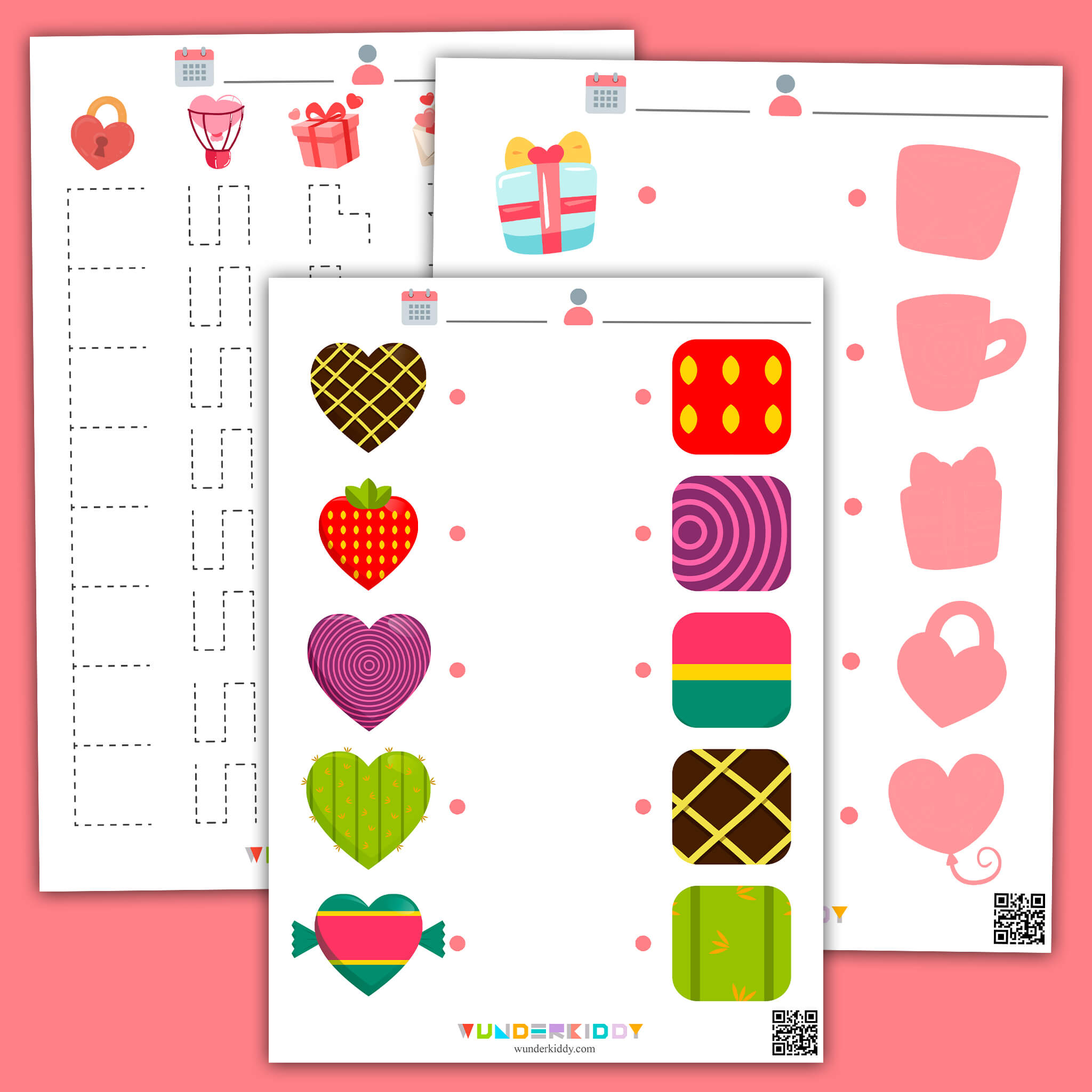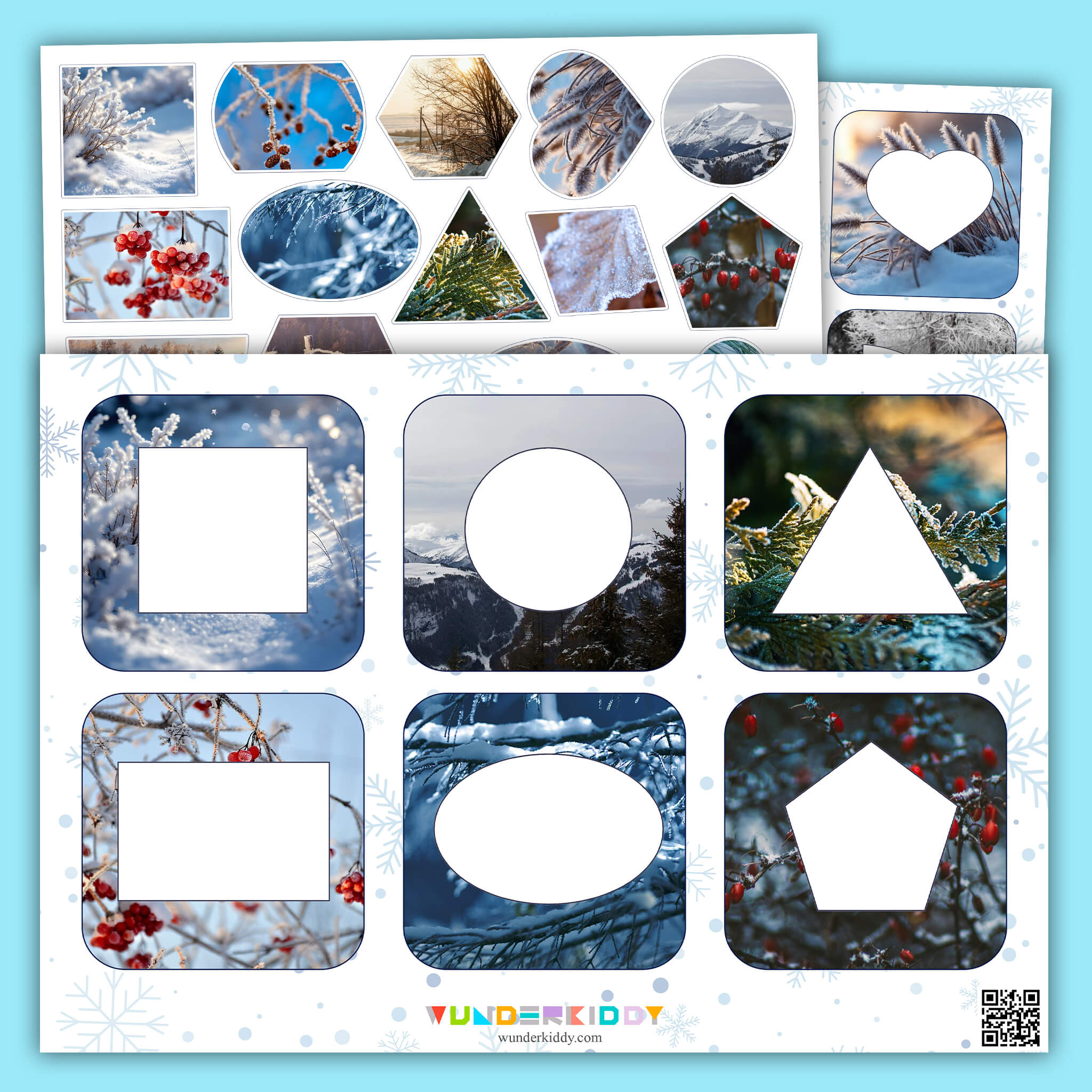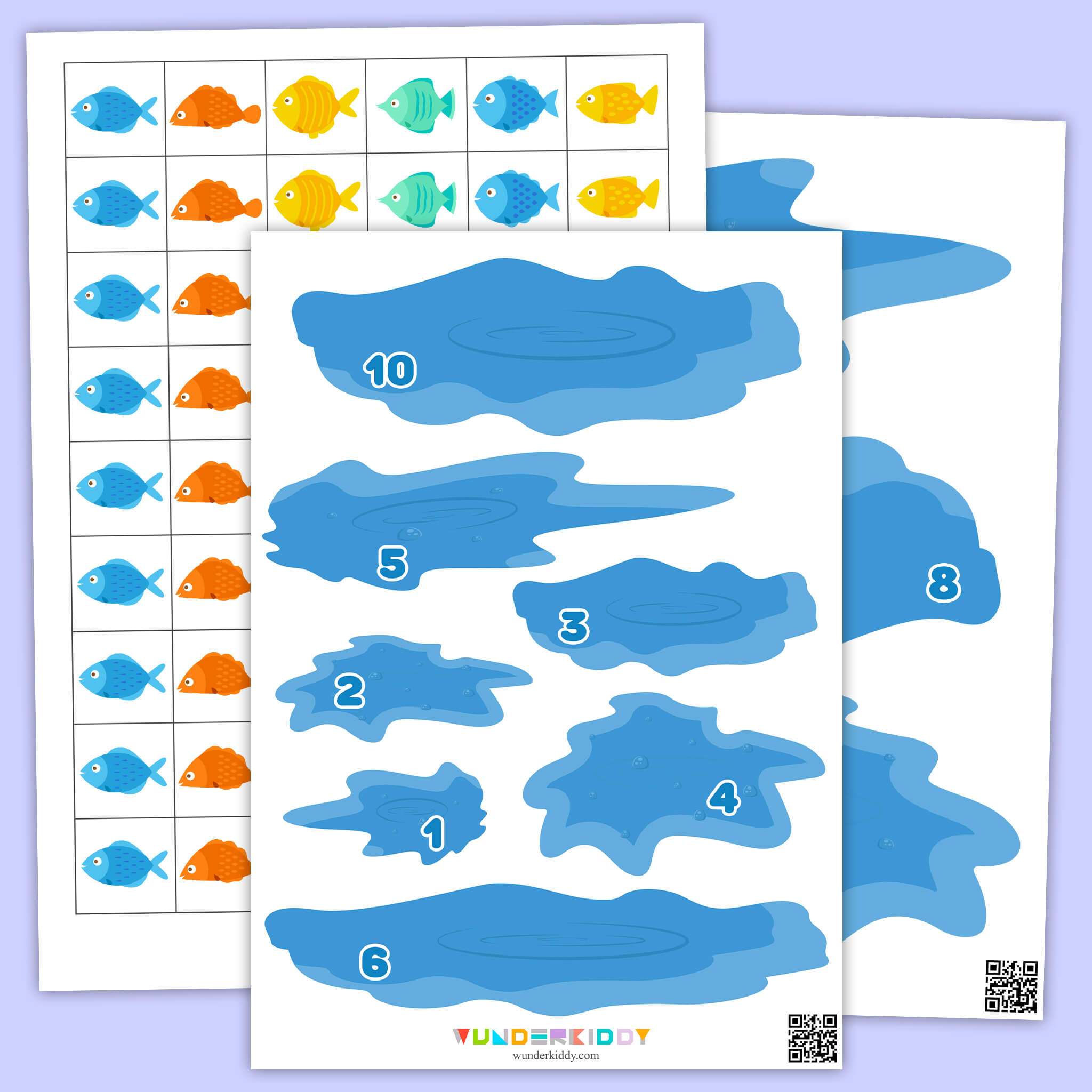Math Worksheets for Kindergarten
FilterMathematics is one of the most essential parts of human knowledge. It plays an important role in the logical thinking and analytic abilities of people. Besides this, mathematics is used in many fields that children will learn at school. That is why basics of math are essential even in a preschool age. Preschool math and counting activities are to develop logical and analytical thinking, spatial intelligence, memory, reasoning skills and concentration ability. All these skills and abilities are necessary for better learning achievements at school.
Math worksheets for kindergarten
Adults interact with numbers and do simple math operations every day, and so do children. Many parents ask how to teach my toddler numbers. First, children get to learn numbers and the concept of counting. This is the first step into the world of math, and the gained skills will be useful in future life. We offer mathematic and number activities also for the youngest students, for babies and toddlers. On WUNDERKIDDY you can find printable PDF toddler math and number worksheets and color activities for free, they can be used for lessons in kindergarten or at home. Using WUNDERKIDDY math worksheets for kids children learn math with interest and motivation, in a fun play form.
Math worksheets and games
WUNDERKIDDY offers children-friendly educational materials that help to catch children's attention and keep them focused on fun and interesting learning tasks. Using our printable math worksheets, children can learn:
- numbers recognition and counting;
- addition and subtraction;
- basics of geometry;
- comparing numbers and quantities;
- logical and analytical thinking.
WUNDERKIDDY math worksheets for kids are well suited for kindergarten activities. Using our kindergarten math worksheets, you find an easy way how to teach math concepts and numbers to preschoolers and even ways to teach numbers with from 2 years old.
What are WUNDERKIDDY math worksheets pre-k?
- Learning cards to get acquainted with numbers;
- Educational games to learn counting up to 5, up to 10 and up to 20;
- Pre-writing sheets to develop number writing skills;
- Preschool games to learn basic geometric shapes (square, circle, triangle, ellipse, etc.);
- Math brain-teasers to improve spatial intelligence by preschoolers;
- Worksheets to learn basic math correlation like «number-quantity», «object-shape»;
- Addition and subtraction play activity sheets for kindergarten or homeschool;
- Matching and comparison games to be able to compare quantities: more, less or equal.
- Pattern tasks to teach children how to make logical connections. Doing patterns, children can make predictions and logically continue a chain, because they understand what comes next.
Advantages of math activities for preschoolers
Math activity can develop comprehensively another essential skills, e.g.
- Most printable math games consist of small game elements, using those children develop fine motor skills (cutting out, selecting and fixing game items with clothespins);
- Counting activity also improves speaking skills;
- Math pre-writing sheets develop graphomotor and fine motor skills;
- Numbers coloring pages improves imagination and creativity;
- Doing mathematic tasks on different topics, children gain various knowledge about the world around and enrich their vocabulary.
How to get kids interested in learning
Children at preschool age are very active. They cannot concentrate on one task for a long time and their activity need to be changed every time. The only way to get kids interested in learning is to make learning a funny game. Mix math tasks with pre-writing and sport activities, puzzles or memory games, in order not to tire children with learning.
Printable games with single game elements are more attractive for kids: for example, they like taking carrots with fingers and putting them into a basket more than count them in the picture. That is why we recommend lamination of game elements, they are nicer to touch and a child will like to play with them again and again.
Demonstrate a child a practical use of math in the everyday life. It is a great motivation, if a child can count money while shopping or compare what volume is more favorable to buy.
Use visual aids, e.g. charts, diagrams and other printables to decorate children's room or classroom. Visual learners provide children with reference points as they work. The best way is to use visual aids that were made by children themselves. It will help to remember the most important basics, concepts and terms.
The most influential principle of an effective preschool learning is not to be boring for children. Watch what your child like to do the most and select a game on the appropriate topic. WUNDERKIDDY offers math activities for preschoolers of different age categories on different topics, you should just select ones the most preferable for your child.
